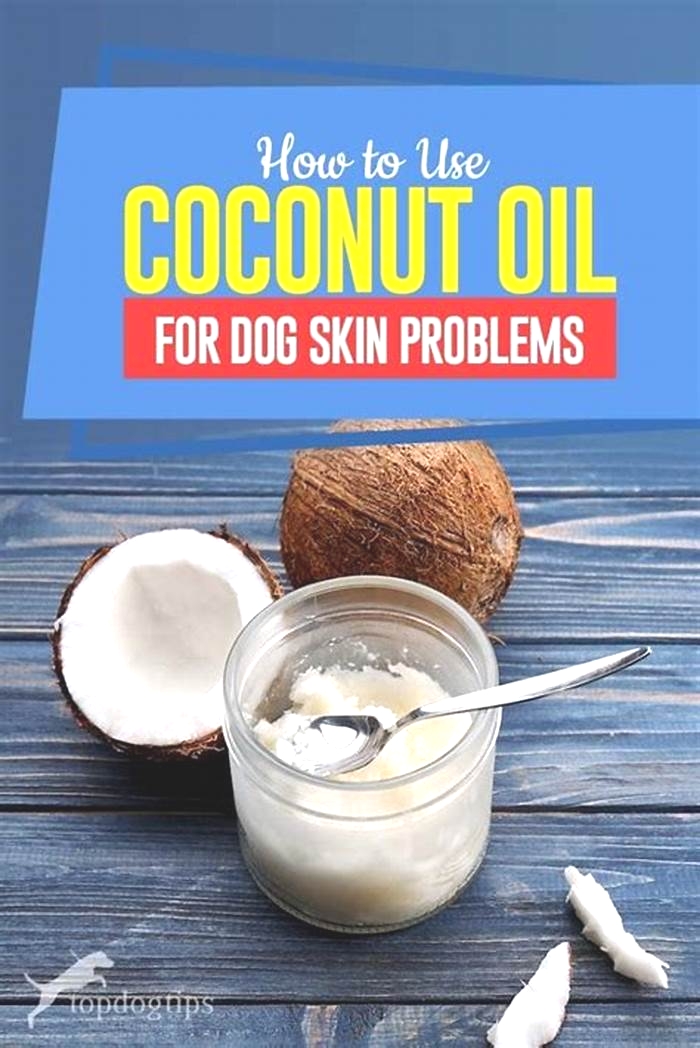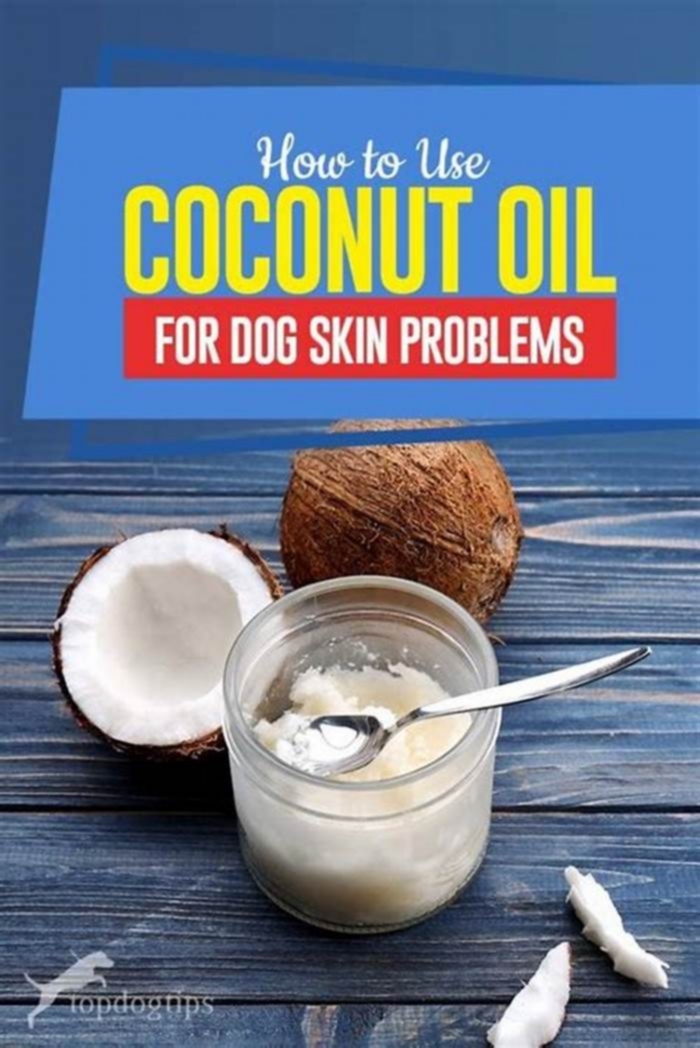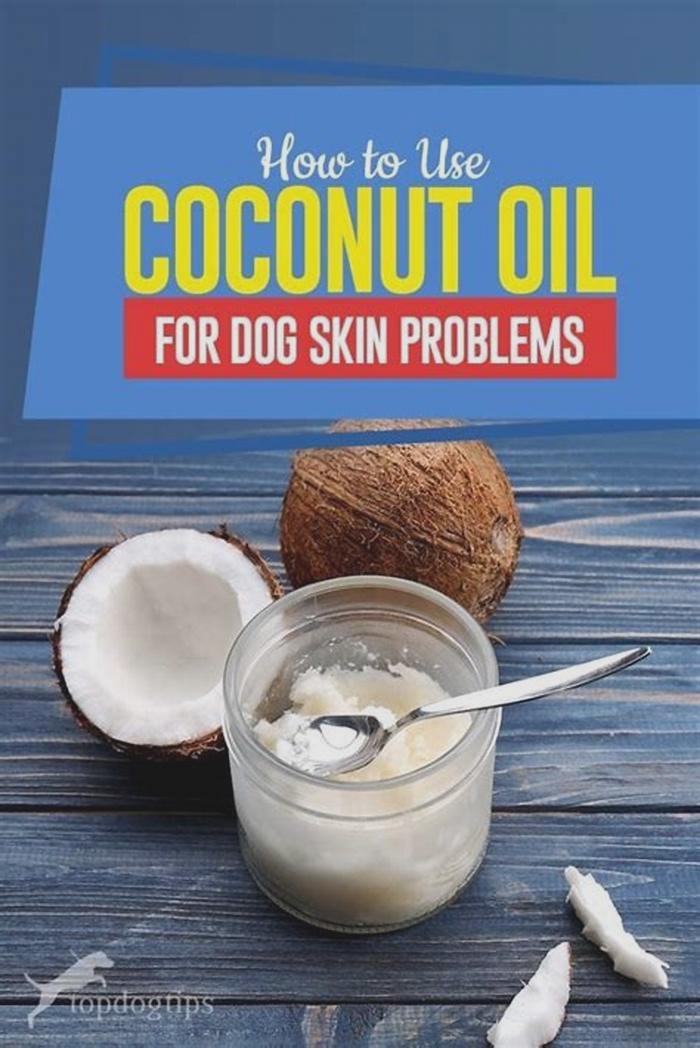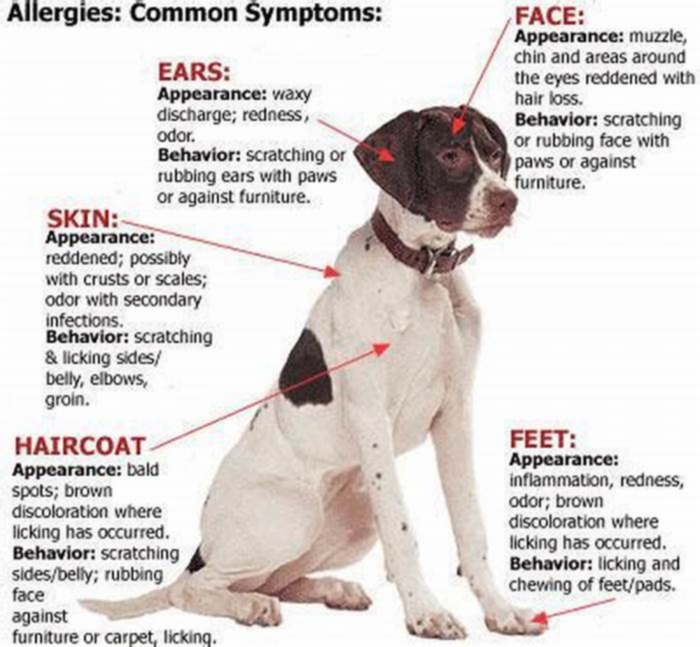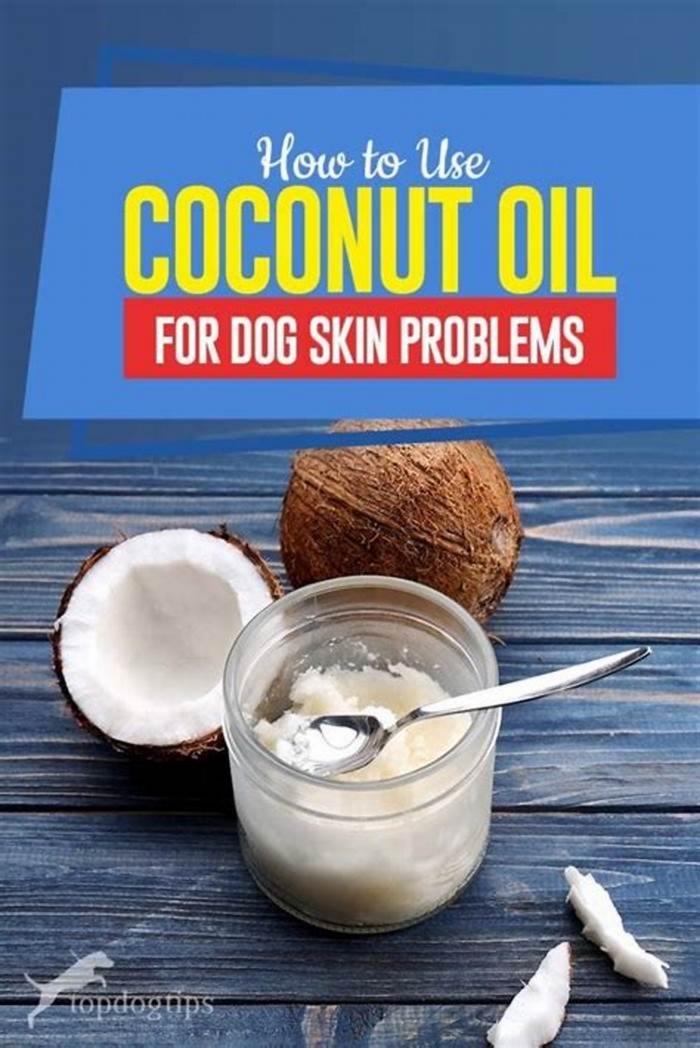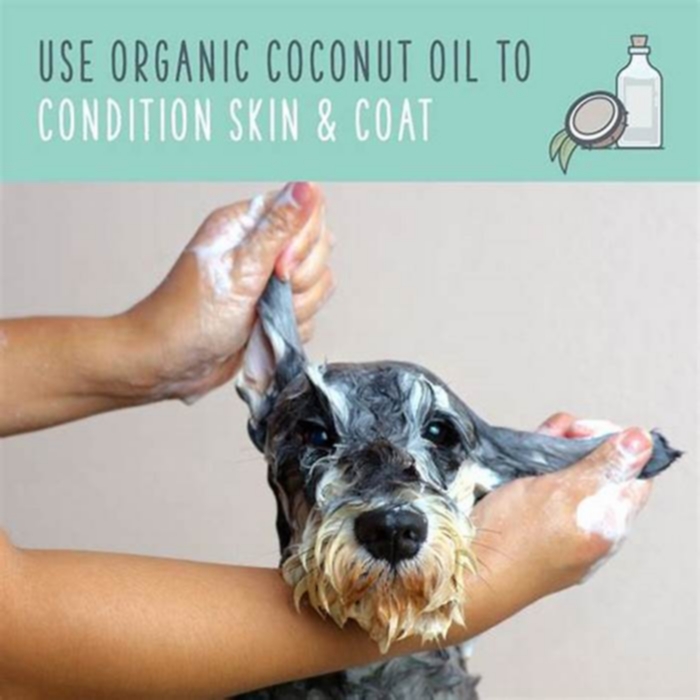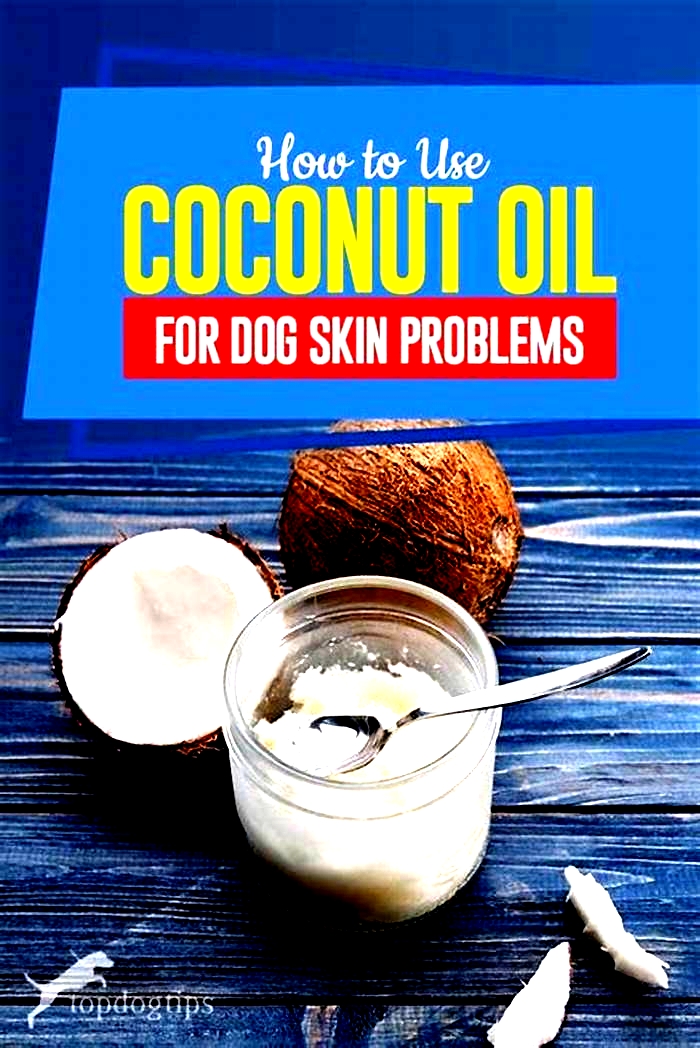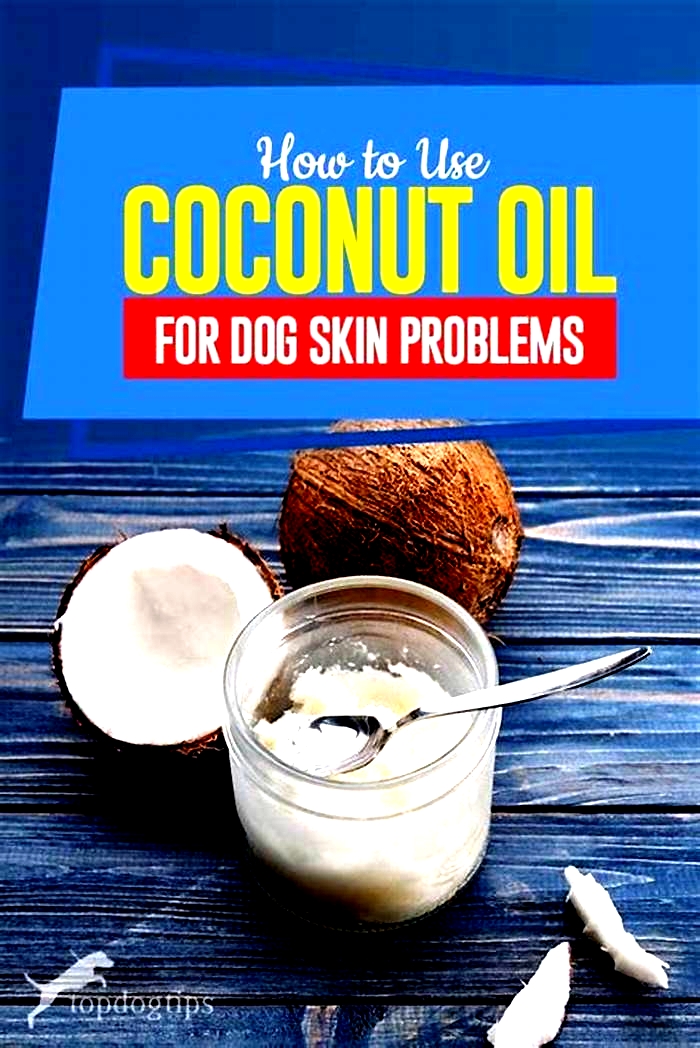Does coconut oil help dogs with skin allergies
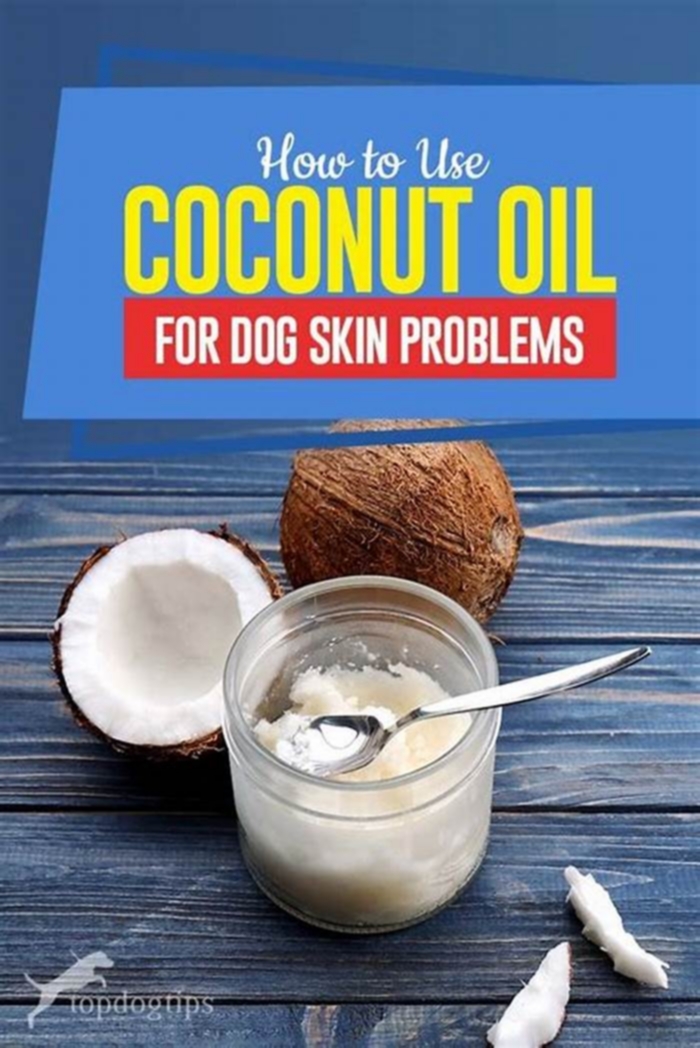
Coconut Oil for Dog Skin: Apply & Cure Skin Problems (Based on Studies)
Coconut oil for dog skin has become a health trend among humans and pet owners in the past decade.
Thanks to its many health benefits, coconut oil is very effective on dogs' skin problems (1, 2).
According to the American Kennel Club, coconutis knownfor easing itchy, dry skin, bites, stings, and hot spots.
Additionally, shampoos manufactured from natural oils like coconut oil can repair damaged skin and lessen allergies.
In this article, we are going to cover questions and points on coconut oil for dogs, just to name a few:
- Is coconut oil safe for dogs' skin?
- Coconut oil for dogs' itchy skin
- Coconut oil for dogs' skin allergies
So lets look closer at how to use coconut oil on dogs' skin problems.

What Is Coconut Oil and What's In It?
Coconut oil is extracted from mature raw coconuts or dried coconut kernels (3).
It is edible, and its very likely that youve eaten it before, even if you are not aware of it.
This product is a regular part of many cuisines, especially in Asia.
In addition to the food industry, coconut oil is often used in beauty products.
It can be found in different forms, like most other oils. There is unrefined, virgin, and extra-virgin coconut oil.
You can also find refined coconut oil in the market, which has a neutral taste.
Coconut oil is rich in healthy fatty acids, which comprise approximately 65% of its content (4).
The medium-chain fatty acids that coconut oil provides include the following:
- Lauric acid:49%
- Myristic acid:18%
- Caprylic acid:8%
- Palmitic acid:8%
- Capric acid:7%
- Oleic acid:6%
- Linoleic acid:2%
- Stearic acid:2%
Most of the benefits of coconut oil for dog skin problems will be attributed to lauric acid, of which there's nearly 50% in coconut oil no other oil on the planet has as much of it (5).

Coconut Oil for Dog Skin: 6 Benefits
1. Coconut Oil for Dogs' Itchy and Dry Skin: Moisturize Your Dog's Skin
Healthy and hydrated skin is crucial to maintain, both in humans and dogs, to keep bacteria away from the body because it acts as a strong barrier (6, 7).
Several studies with humans and animals demonstrated how applying some coconut oil to the skin will keep it better hydrated, ultimately making it not only look healthier and shinier but also maintain its barrier strength.
One study, in particular, found significant improvements in skin hydration when applying coconut oil, and it was just as effective as some other well-known treatments (8).
Another study found how coconut oil used for dogs' itchy skin fights the negative effects of eczema.
Eczema is a skin condition that may cause itchiness, rashes, and scaly skin in dogs.
Applied coconut oil reduced all these factors, made the skin less dry, and effectively treated eczema (9, 10).
2. Coconut Oil Kills Bacteria Present on a Dog's Skin
Speaking of keeping the skin healthy to fight off bacteria, coconut oil not only helps with that but also keeps dangerous microorganisms away from the skin due to its antimicrobial properties, some of which could cause a number of different skin conditions (11).
The main protector in coconut oil is lauric acid, and approximately 50% of it is in coconut oil.
Studies found that lauric acid is the most effective fatty acid at blocking and fighting different harmful bacteria, many of which cause different skin problems (12, 13).
To a lesser extent, capric acid found in coconut oil is another effective fighting agent, and researchers found that it's great not only for fighting a variety of bacteria strains but also for preventing fungi growth (14, 15).
3. It Helps to Repel Parasites
Studies found that fatty acids in coconut oil provided protection against several parasites for up to 7 days.
For brown dog ticks, in particular, coconut oil had repellency from 84% and up to 88% (16).

In addition to that, coconut oil was found to be an effective repellent against stable flies and other blood-sucking insects such as horn flies, bed bugs, and lone star ticks (17).
4. Coconut Oil for Dog Skin Allergies, Acne, and Scabs
Coconut oil components are able to reduce inflammation on the skin thanks to their anti-bacterial properties.
The result is a reduced chance of developing several skin conditions like eczema, crusty scabs, atopic dermatitis, acne, and others (18, 19, 20, 21).
Again, most of this is due to the lauric acid content in coconut oil.
Furthermore, studies show how a combination of lauric acid and capric acid, both of which are present in abundance in coconut oil, is extremely effective at killing the specific bacteria that cause skin health problems and is even more effective than benzoyl peroxide (22, 23, 24).
5. Coconut Oil Helps to Heal Your Dog's Skin Wounds
For a dog that has a wound on its skin, applying coconut oil will help the healing process as well as prevent further inflammation and infections, according to several animal studies.
One study, in particular, observed how components of coconut oil improve the status of antioxidants and increase collagen levels (both of which are crucial to the healing of wounds) and, thereby, effectively speed up the whole wound healing process (25).
The anti-microbial properties of coconut oil will also prevent the development of infections and inflammation and reduce the risk of complicated healing processes (26).
Coconut oil is even good at treating and healing wounds from burns, particularly when it's combined with an antibiotic (27).
6. Coconut Oil Reduces Skin Inflammation
A number of dog skin conditions are the result of inflammation, and coconut oil was found to have anti-inflammatory properties and even help with relieving pain associated with some skin conditions (28).
In another study of different oils (coconut, sunflower, olive oil), scientists found that only coconut oil was effective at improving levels of antioxidants and preventing oxidative stress, which then eased inflammation (29, 30).
Finally, coconut oil was also shown to fight skin fungi like candida, prevent hair damage, and help protect the skin from UV rays by up to 20% (31, 32, 33, 34, 35).

Coconut Oil for Dog Skin:How to Use It
Coconut oil can be given to dogs orally or applied topically onto a dog's fur and skin.
Including coconut oil in your dogs diet can improve their health in general.
But for the best results regarding skin and coat health, coconut oil should also be used topically.
Which Coconut Oil is Best for Dogs?
There are two ways that coconut oil is produced: wet processing, which is derived from raw coconut meat to create virgin coconut oil, and dry processing, where the oil is derived from dried coconut meat and kernels (36).
Several studies have shown that virgin coconut oil (from wet processing) is much better and more effective for skin health and different skin conditions (37, 38).
Below are some of the best and most proven brands of coconut oil for dogs and their skin.
| Preview | Product | Rating | |
|---|---|---|---|
 | Virgin Coconut Oil, 16 fl oz - Non-GMO,... | 101,191 Reviews | Check Price |
 | Amazon Fresh, Organic Virgin Coconut Oil, 15 Fl Oz... | 14,933 Reviews | Check Price |
 | Nutiva Organic Coconut Oil 78 fl oz, Cold-Pressed,... | 53,491 Reviews | Check Price |
 | 100% Organic Coconut Oil for Dogs & Cats - Lotion... | 899 Reviews | Check Price |
 | Nature's Way Organic Extra Virgin Coconut Oil,... | 16,116 Reviews | Check Price |
How to Feed Coconut Oil to Your Dog?
Coconut oil can be given to dogs daily with meals, once or twice daily. The amount of oil in your dogs meals depends on your pet's size.
It is recommended that you introduce coconut oil into your dog's diet very slowly.
Try to start with 1/4 of a teaspoon for small dogs on a daily basis. For large breeds, start with 1 teaspoon with every meal.
Overweight and obese dogs should not be given coconut oil more than once a day because it has a high fat content.
Pay attention to your dogs weight if you give him coconut oil on a regular basis, and consult your vet if you notice any weight gain.
How to Use Coconut Oil Topically?
Using coconut oil topically on dogs is simple.
Start with small test amounts to see how your dog's skin or fur reacts first. Also, your dogs fur can get greasy if you apply too much.
Simply rub a bit of coconut oil between your hands and put it on your dogs fur, like you are giving your pet a gentle massage.
Use your fingertips also to rub the oil on the dog's skin. It is best to apply coconut oil once or twice a week.
If you are dealing with a specific skin problem in a dog, apply the coconut oil directly to the affected area.
Your dog may lick some of the oil, but thats not a problem because coconut oil is edible, healthy, and safe for dogs.
However, it is best to let the oil get absorbed for about five minutes and then rinse your dog off to get the excess oil off if need be.
Alternatively, you can make a DIY dog shampoo from organic coconut oil and use it for bathing your dog once a month or more frequently if needed due to certain skin issues.
Keep in mind that some dogs can be allergic to coconut oil.
If you notice any signs of an allergic reaction, like itchiness, hives, red or inflamed skin, swelling, vomiting, and diarrhea, take your dog to the vet to rule out or confirm a coconut oil allergy.
Coconut oil for Canine Seborrhea
Feeding and even applying coconut oil topically seems to help overall in treating and preventing canine seborrhea from happening to your pup.
Same as we said before, coconut oil helps provide a strong barrier fighting off bacteria and other parasites from infecting your dog.
Coconut Oil for Dog Skin: FAQs
Can I put coconut oil directly on my dog's skin?
You can put coconut oil directly on your dog's skin. It can hydrate the skin of your dog and stop flakes from forming.
Coconut oil is known to have natural antiviral, antifungal, and antibacterial properties. It is safe to apply topically without a prescription to aid in the healing and comfort of wounds.
How do you apply coconut oil to dog skin?
Simply massage a small bit into the skin with your fingertips while gliding your fingers through your dog's fur.
Using coconut oil, your woofer's coat can look smoother and glossier.
You may rest certain that coconut oil can be a non-chemical solution to keep fleas and ticks away and protect Fido from sickness if you live in a forested region or enjoy taking him on hikes.
Can I bathe my dog with coconut oil?
Giving your dog a coconut oil bath may be helpful if they have parasites, skin allergies, or suffer from seasonal dry skin and flaky skin.
Allow coconut oil to stay on your dog's skin and coat for around 10 minutes before washing it off with dog shampoo and water.
To get the coconut oil through your dog's dry fur and all the way to his skin, think about using a rake brush or a pin brush.
Can I rub coconut oil on my dog daily?
One teaspoon at a time, warm it between your hands, and then apply it to your dog's skin and coat once a week. Give it some time to absorb.
You can shampoo their coat afterward to retain the moisturizing effects if you discover that it is greasy.
Coconut Oil for Dog Skin: Before You Go
As you can see, coconut oil is a rising star in the skin and overall health of your dog.
Coconut oil for dog skin has been widely effective.
Today, we covered the following:
- The Safety of Coconut Oil for Dogs' Skin
- Coconut oil for Dogs' itchy skin
- coconut oil for Dogs' skin allergies
There are many other uses for coconut oil, including their diet.
Overall, this is a great supplement to include in your care and their lifestyle on a daily basis.
If you do, you'll spend less time and money spent at the vet dealing with all kinds of skin problems.
Your dog will be better for it as well.
READ NEXT:
Disclosure: Wemay earn affiliate commissions at no cost to you from the links on this page. This did notaffect our assessment of products.Read more hereand findfull disclosure here.
Want to share this?


